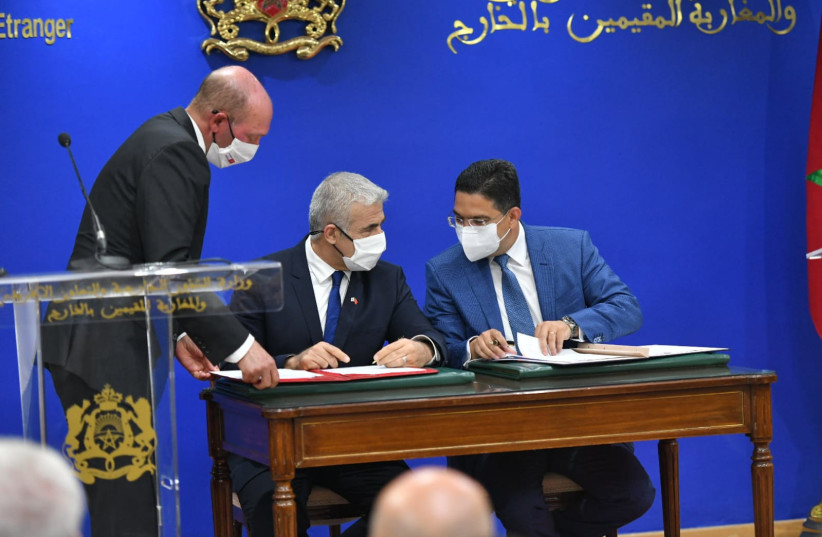Morocco is interested in purchasing Israel’s Iron Dome in order to defend against aerial threats, a deal that defense sources have told The Jerusalem Post is unlikely to be signed any time soon.
According to the French-language Le Desk news site, Rabat has expressed interest in the system produced by Rafael Advanced Defense Systems for intercepting mortar shells, rockets, and drones.
The system “would ensure the better defense of the sand wall in the Sahara, but also of civil and military zones of a sensitive nature,” the report said.
Morocco built its 2,700-kilometer wall in its southern provinces in the 1980s in order to defend the country against the Polisario, an Algerian-backed militant group that has been fighting for independence from Rabat.
Built out of sand lined with landmines, the wall’s height varies, but it’s rarely higher than three meters.

The Polisario front seeks full independence for Western Sahara, and in November declared a 1991 truce as “null and void” after Moroccan forces broke up a blockade of a highway toward Mauritania that the group said had violated the ceasefire agreement.
Tensions have recently risen with Algeria, which broke off diplomatic ties in August citing “hostile actions” by Morocco, which denied the charges.
The Iron Dome carries 24 pounds of explosives and can intercept an incoming projectile from four to 70 kilometers away. It can calculate if rockets will land in open areas, or civilian centers, and thus choose whether to intercept them.
Designed to shoot down short-range rockets, the Iron Dome is an integral component of Israel’s multi-layered defense system, and has been used in several wars and dozens of rounds of conflict between Israel and terror groups in the Gaza Strip.
But the sale of such a system to Rabat is “unlikely at this time,” sources told the Post, and neither Israel’s Defense Ministry nor Rafael had any comment on the report.
Apart from Israel, which is the only country in the world to use the Iron Dome on an operational level, the US Army recently deployed two batteries to the pacific island of Guam to further train and refine the deployment capabilities of troops that will be manning the system.
The US Army purchased the two off-the-shelf batteries from Rafael in August 2019.
There have also been reports that Saudi Arabia was interested in the Israeli-made system, after the Americans removed their THAAD and Patriot batteries from the kingdom.
But Morocco, unlike Saudi Arabia, has had close economic, diplomatic and military ties with Israel for years, and the two countries recently re-established ties under the Abraham Accords along with the United Arab Emirates, Bahrain, and Sudan.
Foreign Minister Yair Lapid visited Morocco in August and inaugurated the country’s mission in Rabat. During his two-day visit, Lapid met with his counterpart Nasser Bourita and handed him an invitation from President Isaac Herzog for King Mohammed VI to visit Israel.
In October, the Post reported that Defense Minister Benny Gantz is set to visit the North African state as ties intensify after the two normalized relations last December.
Though no date has yet been set, Gantz will, according to foreign reports, sign defense cooperation deals including plans to develop a domestic industry to produce loitering munitions – drones that can stay airborne over a target.
According to Defense News and French publication Africa Intelligence, the two countries are currently working on the development of a project to manufacture the drones to strengthen Morocco’s air power.
Rabat, the report said, became interested in the use of loitering munitions after Israel Aerospace Industries “highlighted” in a sales pitch the extensive use of the company’s Harop suicide drones by Azerbaijan during the two-month war with Armenia last year.
According to a report in Haaretz, military ties between Israel and Morocco primarily involve intelligence cooperation and trade in arms.
In June, a Moroccan C-130 landed in Israel to take part in an international drill, the first time that a Moroccan air force platform landed in the Jewish State.
In January 2020, the Moroccan army received three Israeli reconnaissance drones in a deal worth $48 million. The deal between the two countries was signed in 2014 and closed via the French company Dassault.
